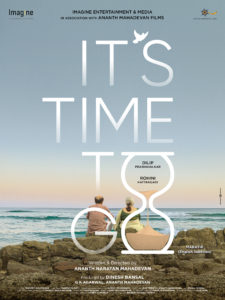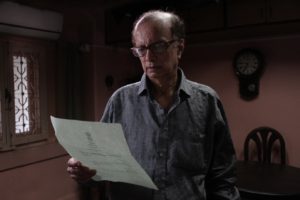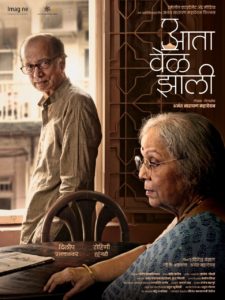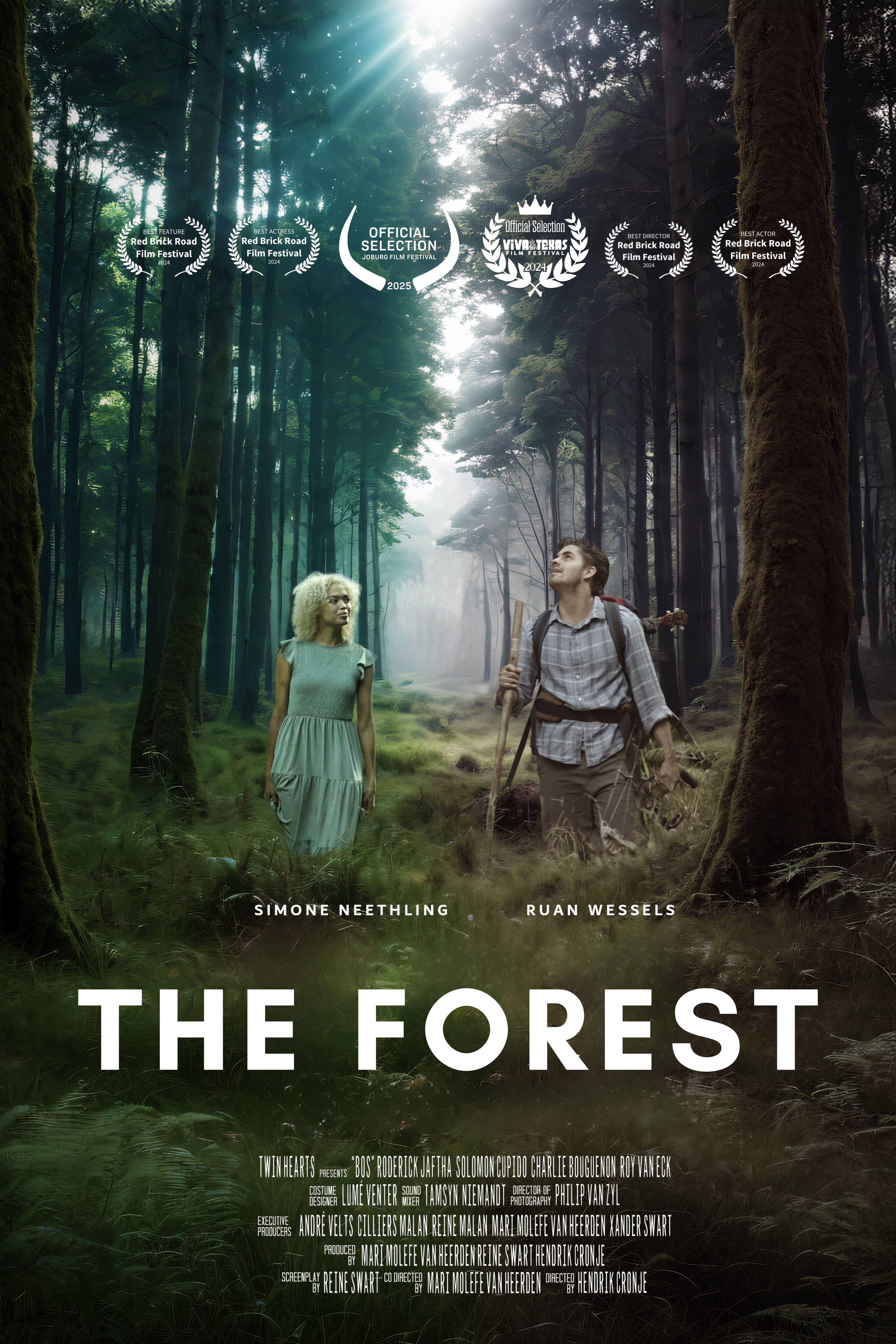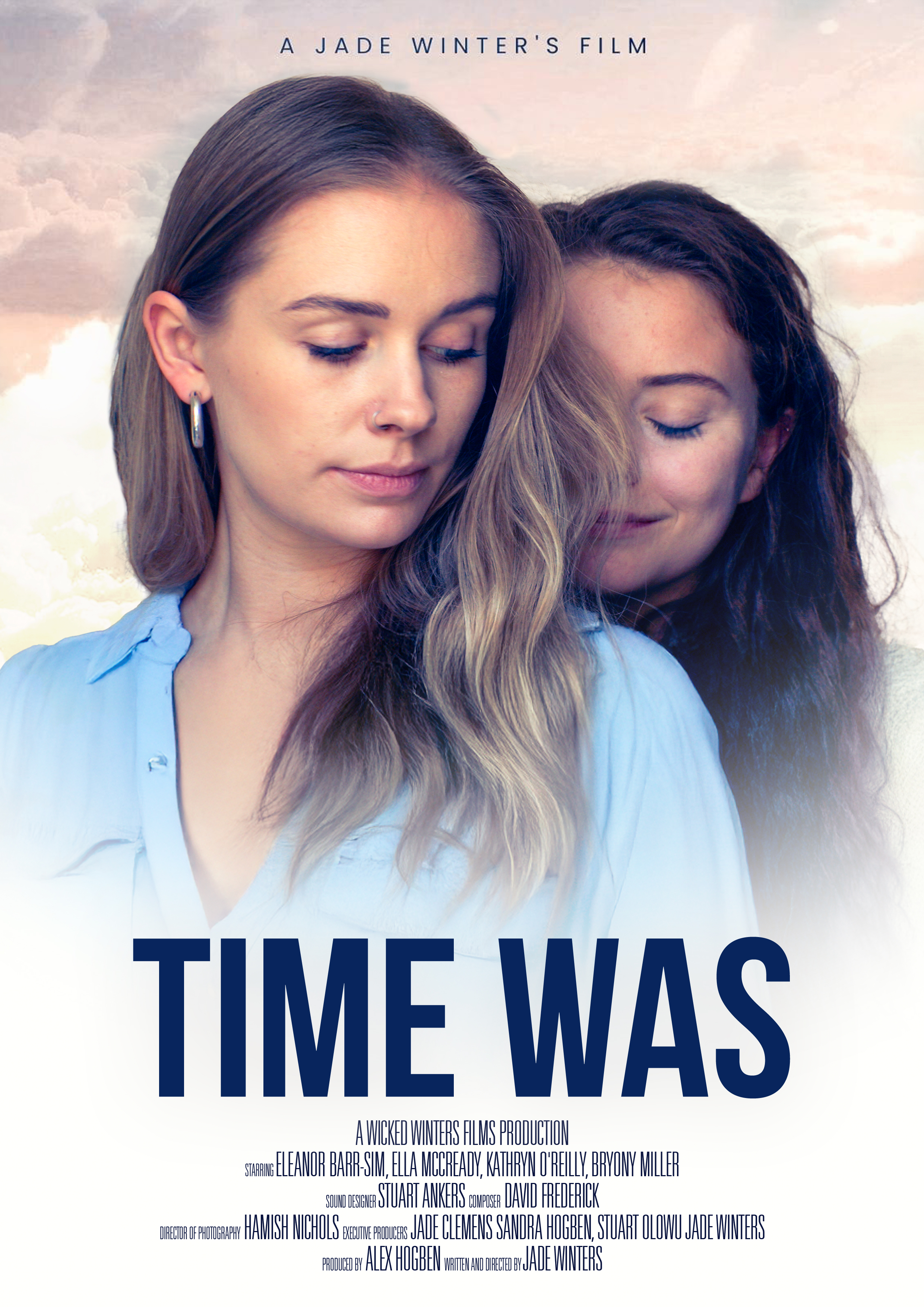
DFW SAFF 2022 Indie Film Review “It’s Time To Go”
NO TRAILER CURRENTLY AVAILABLE
First, the Recap:
What is it to court death? An ominous enough query that most would not even desire to entertain, much less find themselves in constant ponderance over. The treasuring of simply being alive is that which we strive for daily, trying not to question or consider that one facet of existence that IS, undeniably, unavoidable–our mortality. However, what if there is a position in life reached where this exact line of reasoning is not only what is being weighed, but wholeheartedly pursued? Elderly couple Shashidhar (Dilip Prabhavalkar) and Ranjana (Rohini Hattangadi) have come to this juncture where to carry on any longer is seen in their eyes as an unnecessary boon on society. With no sense of purpose, they are insistent upon being allowed to die with dignity, but through their own method and choice. As their struggle to find the means and permission to allow this to occur, it becomes an eccentric study in life, frustration, remembrance, potential loneliness, human rights, and an unsettled reflection upon the world in which we reside.
Next, my Mind:
How else can one feel when viewing a film centered on two people wishing to die other than the empathy, disbelief, confusion perhaps, and deep-seated understanding that while passing on comes for us all, purposely seeking it out or wishing it sooner than later seems like either insanity or grander loss of perspective on the value of being alive. Yet, throughout this 90-minute indie feature from writer/director/producer/editor Ananth Mahadevan, producers Dinesh Bansal and G.K. Agarwal, plus executive producer Atul Goel that had its North American Premiere as part of the Senior Citizens Programming at the 2022 DFW SAFF sponsored by Toyota USA and hosted by Jingo Media Founder/Festival Director Jitin Hingorani and Artistic Director Ambica Dev, we are given opportunity to hear the arguments, postulations, rationalizations, and more that admittedly speak with clarity and perfectly logical degrees of intelligent to the cornerstone concept being addressed here-euthanasia. Hotbed/deeply debated and controversial subject matter, absolutely. But, is this not the hallmark of independent filmmakers? Bold, fearless, and willing to take on anything.
While this critic will confess on a personal level that I don’t believe in the practice, more so when it sometimes seems like something that would be, as the film depicts during its unfolding events, abused if actually made legal in any form, what’s indisputably compelling about the narrative that sees two relatively spry and fully capable elderly people deciding they’ve had enough of life and therefore wish to go out together in peace rather than face other possible realities that would be much worse, are the thematic explorations which arise including our human fear of death, morality, dying happy as opposed to in pain or other suffering, perhaps establishing a lasting precedent or legacy, and having to watch everything change around you. Additionally, the oft heard notion from older people about not wishing to be a burden to others or the world also gets its fair share of coverage as well. This story is also, apparently, based on real happenings, which always gives a film that extra layer of impact with weighty/difficult material.
While we (I hope, anyway) don’t wish to see any other human being in abject anguish or linger unduly within a condition that has previously been diagnosed as an inevitable cause of one’s demise, the film smartly thrusts us into a circumstance where this, to our knowledge, doesn’t appear to be the case, and hence why the topical path being followed here is that much more relevant in grander nature beyond whether you find yourself agreeing or disagreeing with its focus. I then must give the film full props for managing to imbue the narrative with a lot more humor than would ever be anticipated given its themes, as it does very effectively showcase the manners and actions we take when encountering extreme situations, especially of our own ongoing making, in order to ideally achieve what we’ve set out to do. Mind you, this is DARK humor as a whole, but how it’s mixed in relative to the heavier dramatic air the project carries, it becomes a welcome change to SMILE at points during it.
It does point us to the idea of OWNING our lives, WHO we are, and HOW we might choose to both live in this world AND leave it, which in itself more than makes sense. But, likewise, the narrative has an intent to put these headier contemplations in the forefront and allow us as the viewer to decide as the film’s finale comes along, striking quite a distinctly affecting chord, putting all we’ve taken in into a shifted yet strangely more apropos context that is then employed to grant us an interestingly gratifying conclusion, even if a conjecture-filled one. There’s nothing “typical” about this project, it’s an outside-the-box and quirky exercise in unconventional filmmaking, at least to this critic, but as stated above and MANY a time before, this screams indie film from start to finish, whil providing us the overall character/narrative-centric presentation we would expect from a genre effort such as this, here via equal parts provocative and evocative to its core.
What is NOT in ANY way in question here are the beautiful performances turned in by the iconic pair of prolifically talented stars cast to play the aged couple, the Leles. First up is Prabhavalkar through his turn as Shashidhar, a dignified but stubborn (though often humorously so!) older man who’s come to a point where death on his own terms is the point of contention between him and the society he’s resided in for the 70 years he’s been alive. Making marked efforts to gain the permission he seeks so that he and his wife can choose their ending and pass on in peace are constant, with so many doors he attempts to open being denied, questioned, or seen as utter folly due to perceived senility most likely. Yet, he remains steadfast in his goals, and even when it all looks to finally yield possible (but not guaranteed) results, unforeseen alterations in the reality around him occur, and it’s a whole adjustment to both he and Rajana’s way of thinking. It’s one of those calmly and quietly earnest performances that Prabhavalkar provides and is a treat to watch.
With that same magnitude of wonderfully understated fervor and sincerity fully on display through her acting, Hattangadi brings us astutely into the life of a woman both in league with her husband yet seems to periodically show amounts of hesitation about their still unresolved intent through her role as Ranjana. In her mid-60’s, Rajana goes about daily routines in taking care of herself and Shashidhar while endeavoring to support the road they’re both wishing to embark upon. Sometimes thinking his antics and methods have perhaps gone a LITTLE overboard or astray in communicating their intent to higher-ups who could grant them their request, she still comes to moments of real joy and fulfillment in life still that MAY be causing some rethinking, though even then, it doesn’t cause blatant wavering in her resolve either. As mentioned above, it’s another grounded, fully believable character Hattangadi creates for us in Rajana, inviting us to both sympathize with the cause but leaves room to doubt it as well.
There are several primary supporting appearances made throughout the film, but given the manner in which the film credits were displayed, I was not able to ascertain character names to go with the associated actors, so I do apologize but let it be known that you all are NOT forgotten about, as I usually make efforts to mention supporting actors when I am able as you are just as important to me as the leads for your contributions. So, in total, “It’s Time To Go” takes its foundational heart and allows it to pump unapologetically and with deep purpose as it tackles an always sensitive general topic in death while carrying that aspect into a more specifically precarious one while also seeing life through totally different angles. It does so not to BE inflammatory, but rather to elicit us to view its themes in a broader societal sense that we may experience that freedom we all (should) be enjoying by choosing to take the film in–make up our own minds. Kind of like what I encourage when posting reviews. It’s my honest opinion, but think for yourself.
As always, this is all for your consideration and comment. Until next time, thank you for reading!

